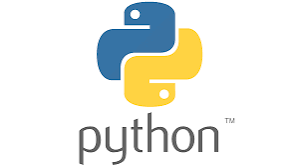Python tricks – The Ultimate Guide
Contents
Fundamentals
Data types
Operators
Conditional
Loops
Functions
Class and objects
Error Handling
Important libraries
Lamba functions
Iterators and generators
Built in functions
String method
How to download the PDF:
-The process is very simple.
-Tap on the Bottom link 👇
-By tapping the link it will take you to a Telegram channel of the exact location.
-You can access it over from there
Download Here
Below key points key to be preferred
I. Foundational Concepts (Essential for any Python interview):
* Data Structures: Be thoroughly familiar with lists, tuples, dictionaries, and sets. Understand their differences (mutability, ordering, etc.) and when to use each one. Practice common operations like list comprehensions, dictionary lookups, and set operations.
* Example Question: “When would you use a tuple versus a list?” (Answer: Tuples are immutable, making them suitable for representing fixed collections of items, like coordinates or database records. Lists are mutable and better for dynamic collections where items might be added or removed.)
* Control Flow: Master if, elif, else statements, for and while loops, and how to use break and continue. Be comfortable with nested loops and conditional expressions.
* Example Question: “Write a Python function to check if a number is prime.” (This tests your understanding of loops and conditional logic.)
* Functions: Understand how to define and call functions, pass arguments (including keyword arguments and variable-length arguments *args and **kwargs), and return values. Be familiar with the concept of scope (local vs. global variables).
* Example Question: “Explain the difference between *args and **kwargs.” (Answer: *args collects positional arguments into a tuple, while **kwargs collects keyword arguments into a dictionary.)
* Object-Oriented Programming (OOP): Grasp the core principles: classes, objects, inheritance, polymorphism, and encapsulation. Be able to define classes, create objects, and understand how methods and attributes work.
* Example Question: “What are the benefits of using OOP?” (Answer: Code reusability, modularity, maintainability, and abstraction.)
* File Handling: Know how to open, read, write, and close files. Be comfortable with different file modes (e.g., ‘r’, ‘w’, ‘a’). Understand how to handle exceptions related to file operations.
* Example Question: “How do you read a file line by line in Python?” (Demonstrate using with open(…) and iterating through the file object.)
* Exception Handling: Understand try, except, finally blocks. Know how to handle different types of exceptions and raise custom exceptions.
* Example Question: “Why is exception handling important?” (Answer: It prevents program crashes and allows you to gracefully handle errors, providing a better user experience.)
II. Intermediate and Advanced Topics (Demonstrate deeper Python knowledge):
* Decorators: Understand how decorators work and how to create them. They’re a powerful tool for adding functionality to functions without modifying their core code.
* Example Question: “Write a decorator that measures the execution time of a function.”
* Generators: Know how to create and use generators. They’re memory-efficient for working with large datasets or infinite sequences.
* Example Question: “What are the advantages of using generators over iterators?” (Answer: Generators are more memory-efficient because they produce values on demand, rather than storing them all in memory.)
* Context Managers: Understand the with statement and how to create context managers using the __enter__ and __exit__ methods. They’re essential for managing resources like files and network connections.
* Example Question: “Explain how the with statement works with file handling.”
* Regular Expressions: Be familiar with basic regex syntax and how to use the re module for pattern matching.
* Example Question: “Write a regular expression to validate an email address.”
* Multithreading/Multiprocessing: Understand the basics of concurrency and parallelism in Python. Know when to use threads vs. processes. Be aware of the Global Interpreter Lock (GIL) and its implications.
* Example Question: “What is the GIL and how does it affect Python’s performance?”
* Metaclasses: (Advanced) Understand how metaclasses work and how they can be used to control class creation. This is a more niche topic, but demonstrating knowledge can impress interviewers.
III. Tips and Tricks:
* List Comprehensions: Use them to write concise and efficient code for creating lists.
* Generator Expressions: Similar to list comprehensions, but create generators instead of lists.
* String Formatting: Master f-strings (formatted string literals) for easy and readable string formatting.
* The collections Module: Explore useful data structures like defaultdict, Counter, and deque.
* The itertools Module: Learn about functions like map, filter, and reduce for functional programming.
* The functools Module: Explore tools like partial for creating partial functions.
IV. General Interview Advice:
* Practice: The more you practice coding, the more comfortable you’ll be in an interview setting.
* Explain Your Thinking: Don’t just write code; explain your reasoning and approach to the problem.
* Ask Questions: Asking clarifying questions shows that you’re engaged and thoughtful.
* Be Prepared for Anything: Interviewers may ask you to solve coding challenges, explain concepts, or discuss your experience.
By covering these areas and practicing regularly, you’ll be well-prepared for your Python interviews. Remember to focus on understanding the underlying concepts and demonstrating your problem-solving skills.
